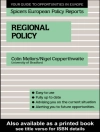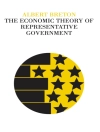‘Nau clarifies that which is complicated, thereby allowing students to make better sense of their world and to become better global citizens.’
—Stewart Dippel,
University of the Ozarks
Henry R. Nau’s best-selling book,
Perspectives on International Relations, is admired for its even-handed presentation of realism, liberalism, constructivism, and critical theory and for integrating these perspectives in every chapter. Students are able to explore the ways these different perspectives shape our understanding of the root causes of historical events and current controversies, and then think critically about the world’s most urgent issues. The new
Seventh Edition includes updates on Brexit, the rise of nationalism, the escalation of terrorism, the use of social media in political protests around the world, and continuing developments in North Korea, Syria, Iran, China, and Russia.
A Complete Teaching & Learning Package
LMS Cartridge (formally known as SAGE Coursepacks)
Import this title’s instructor resources into your school’s learning management system (LMS) and save time. Don’t use an LMS? You can still access all of the same online resources for this title via the password-protected Instructor Resource Site.
SAGE course outcomes: Measure Results, Track Success
Outlined in your text and mapped to chapter learning objectives, SAGE course outcomes are crafted with specific course outcomes in mind and vetted by advisors in the field. See how SAGE course outcomes tie in with this book’s chapter-level objectives.
Cuprins
Figures, Maps, Parallel Timelines, and Tables
Preface
Acknowledgments
About the Author
Introduction • Why We Disagree about International Relations
The Crisis in Syria
The Roles of Perspectives, Levels of Analysis, and Causal Arrows
The Role of History
The Role of Methods
Is One Perspective or Method Best?
The Role of Judgment
The Role of Ethics and Morality
Summary
Key Concepts
Study Questions
Chapter 1 • How to Think about International Relations: Perspectives, Levels of Analysis, and Causal Arrows
The Attacks of September 11
Prisoner’s Dilemma
The Realist Perspective
The Liberal Perspective
The Identity Perspective
Critical Theory Perspectives
Levels of Analysis
Causal Arrows
Key Concepts
Study Questions
PART I • HISTORICAL PATTERNS
Chapter 2 • World War I: World on Fire
Europe in 1914
Realist Explanations
Liberal Explanations
The Last Move
Identity Explanations
Critical Theory Explanations
Summary
Key Concepts
Study Questions
Chapter 3 • World War II: Why Did War Happen Again?
Causes of Madness
Liberal Accounts
Realist Accounts
Identity Matters
Critical Theory Perspective
Summary
Key Concepts
Study Questions
Chapter 4 • The Origins and End of the Cold War
The Long Telegram
Snapshot of the Cold War
Realist Explanations
Identity Explanations
Liberal Explanations
Critical Theory Perspective
Summary
Key Concepts
Study Questions
PART II • THE CONTEMPORARY INTERNATIONAL SYSTEM
Chapter 5 • Realist Perspectives on Today’s World: Unipolarity, Rising Powers, Asymmetric Warfare, and Ethnic Conflicts
Unipolarity
Multipolarity
Asymmetric Warfare
State Sovereignty, Decision Making, and Ethnic Conflicts
Summary
Key Concepts
Study Questions
Chapter 6 • Liberal Perspectives on Today’s World: Collective Security, Multilateral Diplomacy, Interdependence, and International Institutions
Collective Security
Multilateral Diplomacy
Interdependence
International Institutions
Regional Institutions
Summary
Key Concepts
Study Questions
Chapter 7 • Identity Perspectives on Today’s World: Democracy, Religion, Nationalism, and Human Rights
Democracy
Religion
Nationalism
Human Rights
Summary
Key Concepts
Study Questions
PART III • GLOBALIZATION AND CHANGE
Chapter 8 • Realist and Liberal Perspectives on Globalization: Security, Domestic Economy, Trade, Investment, and Finance
Snapshot of Globalization
Security and Economics
Domestic Economic Policies
Trade
Investment
Finance
Summary
Key Concepts
Study Questions
Chapter 9 • Identity Perspectives on Globalization: Development and Environment
Asia
Latin America
Sub-Saharan Africa
Middle East and North Africa
Environment
Summary
Key Concepts
Study Questions
Chapter 10 • Critical Theory Perspectives on Globalization: Inequality, Imperialism, and Injustice
Colonialism and Imperialism
Dependency
World Systems
Multinational Corporations and Exploitation of Labor
Marginalized Minorities: Global Injustice
Persisting Global Inequality
Summary
Key Concepts
Study Questions
Conclusion • Applying Perspectives and Levels of Analysis: The Case of the Democratic Peace
Evidence
Explanations
Summary
Coda
Key Concepts
Study Questions
Glossary of Key Concepts
Notes
Index
Despre autor
Henry R. Nau has combined an outstanding career in the academic world with two opportunities to serve at the highest levels of the U.S. government. He brings this experience to bear in this textbook, integrating theory and practice with unprecedented clarity for understanding historical and contemporary issues in world affairs. Nau is currently professor of political science and international affairs at the Elliott School of International Affairs, George Washington University. He taught previously at Williams College and held visiting appointments at Johns Hopkins School of Advanced International Studies, Stanford University, and Columbia University. From 1977 to 1981, Nau served on the Board of Editors of the journal International Organization. He has received research grants from, among others, the Woodrow Wilson International Center for Scholars, the National Science Foundation, the Council on Foreign Relations, the Smith-Richardson Foundation, the Century Foundation, the Japan-U.S. Friendship Commission, the Hoover Institution, the Rumsfeld Foundation, and the Lynde and Harry Bradley Foundation. Nau served from 1975 to 1977 as special assistant to the undersecretary for economic affairs, Charles Robinson, in the U.S. Department of State. In that capacity he worked in the office of the Secretary of State Henry Kissinger to organize a major conference on science, technology, and foreign policy. For his service, he was awarded the State Department′s Superior Honor Award. From 1981 to 1983 Nau served as a senior staff member of the National Security Council responsible for international economic affairs. He was President Reagan’s White House aide, or Sherpa, for the annual G7 economic summits in Ottawa (1981), Versailles (1982), and Williamsburg (1983), and for the special summit with developing countries in Cancun (1982). At those summits, the United States led a revival of the world economy from the stagflation and resource shortages of the 1970s to thirty years of 3+ percent growth per year, promoting the so-called Washington Consensus (originating in the Williamsburg Summit Communique) of lower inflation, freer markets and open trade. Nau wrote an account of these early years in The Myth of America’s Decline (see below). Outside government, Nau continued his public service. From 1984 to 1990 he served on the U.S. Department of State’s Advisory Committee on International Investment and as the U.S. member of the UN Committee for Development Planning. From 1989 to 2016, he directed the U.S.–Japan–South Korea Legislative Exchange Program, semiannual meetings among members of the U.S. Congress, the Japanese Diet, and the South Korean National Assembly. In 2016, the Japanese government awarded him the Order of the Rising Sun, Neck Ribbon with Gold Rays, the highest honor for academic leaders, in recognition of his work on this Exchange. From 1963 to 1965, Nau also served as a lieutenant in the 82nd Airborne Division at Fort Bragg, North Carolina.Nau’s published books include, among others, Conservative Internationalism: Armed Diplomacy under Jefferson, Polk, Truman, and Reagan (Princeton University Press, 2013, and paperback with new preface, 2015); At Home Abroad: Identity and Power in American Foreign Policy (Cornell University Press, 2002); Trade and Security: U.S. Policies at Cross-Purposes (American Enterprise Institute, 1995); The Myth of America’s Decline: Leading the World Economy into the 1990s (Oxford University Press, 1990); and National Politics and International Technology: Peaceful Nuclear Reactor Development in Western Europe (Johns Hopkins University Press,












